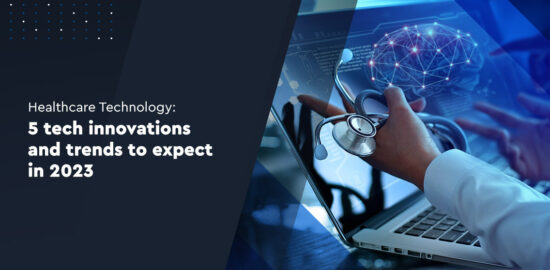
23 Dec
IP rights: Everything you need to know about AI technology and intellectual property rights
As a result of the exponential growth of AI technology and the upcoming societal upswing, a more in-depth discussion has emerged regarding IP rights and the necessary modifications.
IP rights, or Intellectual Property rights, are the rights granted to individuals over their creations. These creations may consist of products or services. However, what is the status of IP rights and AI? How can they adapt to the latest developments?
IP rights provide the most effective means for creators to safeguard their products and services, which are vital. However, what will occur with AI must be determined. If rights are also secured for creating artificial intelligence, it will help people's ability to be creative and innovative with AI.
What concerns lawyers, scientists, and legislators is that AI creations surpass human capabilities. The human creates and regulates artificial intelligence, but the AI machine is solely responsible for its creation. Therefore, in addition to expanding the legal framework, emphasis should also be placed on the following:
1) The consistent regulation of intellectual property rights for AI systems before the advent of AI.
2) Is creating a different protection system for AI-created objects sufficient? Regarding specific criteria, a system in which the rights holder could be either the creator of the AI system or the user?
3) IP rights should be established for particular algorithms and creations not currently protected under the EU legislative framework.
EU and IP rights regarding the protection
Regarding devToM, professionals can rapidly identify risks and opportunities, analyze the market using real-time data, and design innovative products based on market trends. All in all, they can collaborate with their teams more effectively and create successful products. Moreover, legal ramifications generated by the technological evolution of AI are extraordinarily diverse, with significant effects on intellectual property rights and personal data, as well as on ethics and safety, with particular relevance when AI is used in critical sectors.
The EU and its Member States should still adopt clear legislation to regulate AI and IP rights. Nevertheless, the EU has already initiated a discussion about AI technology. In April 2021, the European Commission introduced a proposal for an EU AI Act; adopting this act is still a long way off, and the AI Act Proposal needs to mention IP rights.
The EU AI Act Proposal describes an AI system as: A software that is developed with one or more pre-determined techniques and approaches (among which are machine learning approaches, logic and knowledge base approaches and statistical approaches) which can, for a given set of human-defined objectives, generate outputs such as content, predictions, recommendations, or decisions influencing the environments they interact with.
This absence of a clear regulatory framework leaves law professionals with several issues to address, particularly regarding two topics:
- IP rights for AI systems and algorithms
- IP rights for AI systems and creations
IP rights and algorithms
More difficult to legally and institutionally define are the rights associated with AI technologies involving algorithms. Typically, algorithm-related technological advancements are more complex and employ machine learning. Without delving into the specifics, machine learning generally involves feeding raw data to software, which processes the data based on predefined algorithms and generates output data.
The software, algorithms and input data make up the components of an AI system based on machine learning. In most EU jurisdictions, the software is protected by copyright that belongs to the author (programmer) or, in some cases, to the employer. However, the most significant difficulty arises when discussing the protection of the algorithms, which are more often than not essential to the AI system.
AI algorithms are generally not protected by IP rights, according to the standard approach to algorithm protection. This strategy is founded on the fundamental principle that ideas cannot be patented.
The software containing the algorithm can be protected by copyright. Whereas to protect the algorithms, the developers have to rely on the protection of trade secrets under their applicable national law. They also need to implement the necessary measures to ensure that such algorithms qualify as trade secrets under that law.
Raw data is, in general, not protected as such. Still, it can be saved if it meets the national law requirements for qualifying as covered work. Moreover, this can happen if it is part of a database; sui generis rights protect databases in most EU jurisdictions.
Under these conditions, the primary challenge for AI systems creators or owners will be finding the appropriate means and resources to protect their algorithms. This is happening given that such algorithms do not enjoy specific protection other than trade secret protection and could be freely used by anyone with interest.
AI innovations, IP rights and creations
The protection of AI technology derives from the fact that it conceals the human operator. AI systems do not require motivation to create, so they should not be granted the same protections as human creators. The notion that AI-generated works should be in the public domain and freely usable has been widely discussed in public discourse.
Such an approach could be detrimental to technological progress, mainly because the absence of any protection for creations generated by AI systems would significantly discourage investments in such systems. Additionally, it would not promote progress, particularly in the creative sector. In such a scenario, businesses would only be interested in investing in strategies to improve business process automation. Although, creativity would not be enhanced.
How can companies use AI today?
With devToM, companies can use AI technology to improve their Product Management. devToM uses the newest, cutting-edge AI technology to automate all product management processes and introduce a new product management and product development era. With devToM, tasks are more manageable and help product managers innovate better while saving time and budget.
Sign-up to devToM and get your FREE 30-Days trial now!
In addition, the complex AI algorithms integrated into devToM can scan multiple databases simultaneously, filter results, and generate valuable reports and ready-to-use analyses, making product management processes more accessible and more accurate - based on live market data.
The main advantages of devToM are:
- Sentiment analysis
- Consumer behavior
- Laws and regulations
- Product safety regulations
- Market trends
- Competitive activity
- Published patents
How can companies use devToM?
Companies can sign up in devToM through the leading site. They can log in to their account or sign up and create a new one. Companies can get a free 30-day trial through sign-up and enjoy many AI advantages.

If companies already have an account, they should add their usernames and passwords to enter.

With access to devToM, businesses can add a project if there is no existing one. The project can be just a new idea or an already prepared product.



After companies have added their products-ideas, they can access various data using AI technology.

Nevertheless, it is still being determined how copyright should or could be applied to creations made by AI systems. The question arises as to whether or not copyright protection is the appropriate mechanism in this circumstance. The copyright system is intended to protect human creators, including several moral copyrights intrinsically tied to the author's personality. In light of the preceding, it will be necessary to create new, carefully structured regulations for the unique conditions in order to adapt the IP rights.
In light of the preceding, it will be necessary to create carefully structured regulations for the new conditions to adapt IP rights to current data. devToM enables businesses to enter the world of artificial intelligence without legal or thermal repercussions regarding IP rights. This is achieved by constantly reshaping and adapting based on IP rights and data. Undoubtedly, it is one step ahead of the competition.
devToM is an AI-powered Product Development platform that converts and maintains product ideas, A SaaS application that enables product intelligence by combining the power of artificial intelligence, unstructured data, and a system of best practices.
Regarding devToM, professionals can quickly identify risks and opportunities and analyze the market using real-time data. They can design innovative products based on market trends and collaborate with their teams more effectively. All in all, they can create successful products.














